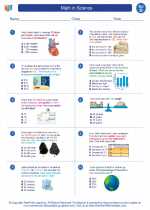Overview of Pharmacology
Pharmacology is the study of how drugs interact with biological systems and how they affect physiological functions. It involves the study of the sources, chemical properties, biological effects, and therapeutic uses of drugs.
Key Concepts in Pharmacology
- Drug Classification: Drugs are classified based on their chemical structure, mechanism of action, and therapeutic use.
- Pharmacokinetics: This refers to the study of how drugs are absorbed, distributed, metabolized, and excreted by the body.
- Pharmacodynamics: This involves the study of the biochemical and physiological effects of drugs and their mechanisms of action.
- Drug Interactions: Understanding how different drugs interact with each other and with the body is crucial in pharmacology.
- Toxicology: This field focuses on the adverse effects of drugs and other chemicals on living organisms.
Importance of Pharmacology
Pharmacology plays a vital role in healthcare by providing the foundation for the development of safe and effective medications. It also helps in understanding the potential risks and benefits of drug therapy, and in developing strategies to minimize adverse effects.
Study Tips for Pharmacology
When studying pharmacology, it's important to:
- Understand the basic principles of drug action and the factors that influence drug response.
- Learn the classification and common examples of drugs within each class.
- Be familiar with the mechanisms of drug absorption, distribution, metabolism, and excretion.
- Practice problem-solving related to drug dosages, interactions, and adverse effects.
- Stay updated with the latest research and developments in the field of pharmacology.
Conclusion
Pharmacology is a complex and dynamic field that is essential for understanding the use of drugs in healthcare. By studying pharmacology, you can gain insights into the effects of drugs on the body and contribute to the development of new and improved medications.
.◂Science Worksheets and Study Guides Fourth Grade. Math in Science

 Worksheet/Answer key
Worksheet/Answer key
 Worksheet/Answer key
Worksheet/Answer key
 Worksheet/Answer key
Worksheet/Answer key
